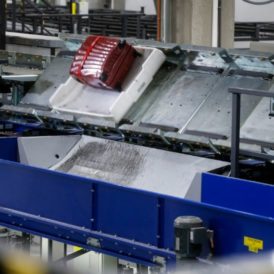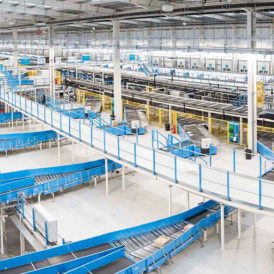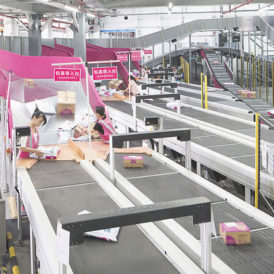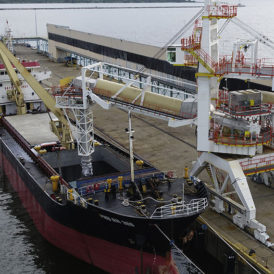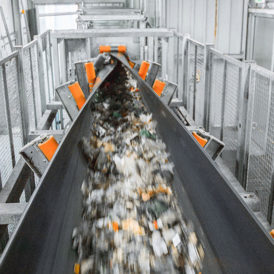This is certainly the case with Baggage Handling Systems (BHS), which are made up of two essential parts: the mechanical system and the software or High Level Controls (HLC) that must work in conjunction to reliably transport countless bags through an airport terminal.
In order to ensure that the software component of a BHS functions as intended, it is highly advantageous to work with a supplier that is CMMI (Capability Maturity Model Integration) Level 3 certified.
A Game-Changer for Airport Baggage Handling
CMMI is a set of guidelines used to develop and refine an organisation’s software development processes. A CMMI Level 3 certification signifies that a supplier has demonstrated a proven track record of developing high-quality software and meeting deadlines while adhering to strict processes and procedures.
Partnering with a CMMI Level 3 certified supplier offers many advantages, including a higher likelihood of timely delivery, better quality software and a more streamlined development process. Additionally, working with a certified supplier provides greater transparency into the software development process, more detailed progress reports, regular communication and increased peace of mind for all stakeholders involved.
“Having a certified supplier allows a customer to feel more confident that they are working within internationally recognised standards with trained personnel,” says Morten Granum, Software Director at BEUMER Group. “We have all heard stories of software not being delivered on time and not working once it was delivered.”
Understanding the Levels of CMMI Certification
CMMI certification is a process improvement framework that consists of five levels, each representing a different degree of process maturity. The first three levels are particularly significant as they represent a progression from an immature process to a well-defined and continuously improving process with a focus on proactive measures.
CMMI Level 1 – the organisation has no standard process, relies on individual staff efforts, lacks formal training or analysis of process performance, and focuses on completing tasks rather than improving the process.
CMMI Level 2 – the organisation has documented and repeatable processes for project management and product development, with trained staff and a data-driven approach to identify improvement opportunities and take corrective action.
CMMI Level 3 – the organisation has standardised procedures with established performance metrics, trained staff, and a data-driven approach to continuously improve processes with a focus on proactive measures to prevent potential problems.
Levels 4 and 5 of the CMMI maturity model are mostly used when working for the military, aviation or space organisations. For civilian and industrial purposes, CMMI levels 2 or 3 are sufficient and still you will be using elements of qualitative control (as in level 4) and continuous optimisation (as in level 5).
Organisations can use CMMI certification to assess their process maturity, identify areas for improvement, and work toward achieving higher levels of maturity. By achieving those higher levels, organisations can improve their efficiency, reduce costs, and provide better products and services to their customers.
“You have to take it step by step,” says Morten Granum. “At Level 2, it’s very much project management. You have a plan and it might be different from project to project how you do it. The main difference at Level 3 is that the plan will have the same structure across the board.”
